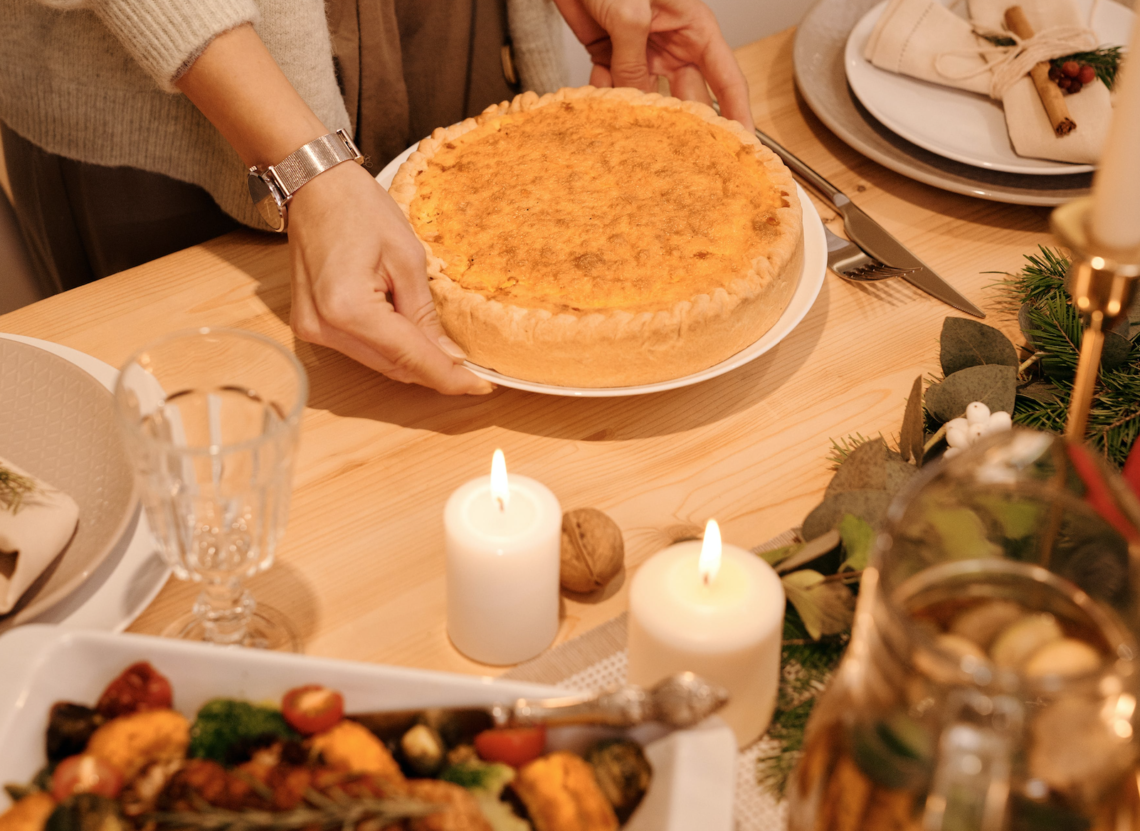The holiday season is a time for joy, celebration, and indulgence. However, it’s easy to let the festivities lead to overeating and excessive drinking. Fortunately, science offers valuable insights that can help us navigate holiday meals and drinks without compromising our health and well-being. In this article, we’ll explore strategies to avoid overindulging during the festive season.
- Mindful Eating
Scientific studies have consistently shown that practicing mindful eating can be an effective way to prevent overindulgence. By paying attention to each bite and savoring the flavors, you’re more likely to recognize when you’re satisfied. One approach is to put down your fork between bites, engage in conversation, and focus on the sensory experience of the meal. This mindful approach helps regulate food intake by allowing your brain to catch up with your stomach, reducing the likelihood of overeating.
Example: During the holiday dinner, take a moment to appreciate the aroma of your food, savor each bite, and engage in meaningful conversations with loved ones. This not only enhances the dining experience but also promotes mindful eating.
- Portion Control
Research suggests that controlling portion sizes can have a significant impact on overall calorie consumption. Use smaller plates to create an optical illusion of a fuller plate, which can trick the brain into feeling more satisfied with less food. Start with smaller portions, and if you’re still hungry, you can always go back for more.
Example: Instead of loading up your plate with large portions of every dish, choose smaller amounts of your favorite items. This way, you can enjoy the variety without overindulging in any particular dish.
- Stay Hydrated
Hydration is crucial for overall well-being, and it can also play a role in preventing overeating. Studies have shown that drinking water before meals can lead to a feeling of fullness, reducing the likelihood of consuming excess calories. Opt for water or other low-calorie beverages to stay hydrated without adding extra calories.
Example: Have a glass of water before sitting down to your holiday meal. Not only will this keep you hydrated, but it can also help curb your appetite and prevent overindulgence.
- Choose Nutrient-Dense Foods
Selecting nutrient-dense foods means choosing items that provide a high amount of nutrients relative to their calorie content. Opt for colorful vegetables, lean proteins, and whole grains to create a well-balanced holiday plate. These foods not only contribute to your overall health but also promote a feeling of fullness, reducing the desire to overindulge.
Example: Include a variety of colorful vegetables on your holiday plate, such as roasted Brussels sprouts, sweet potatoes, and a vibrant salad. These nutrient-dense options add flavor and satisfaction without excessive calories.
- Be Strategic with Alcohol Consumption
Excessive alcohol consumption is a common pitfall during the holidays. Scientific evidence indicates that alcohol can impair judgment and increase the likelihood of overeating. Avoid alcohol at this time or set a limit on your alcohol intake, alternate alcoholic beverages with water, and choose lower-calorie options when possible.
Example: Alternate alcoholic drinks with water to stay hydrated or drink a Mocktail or two and avoid overindulging in both food and drinks.
This holiday season, arm yourself with strategies to enjoy the festivities without overindulging. By practicing mindful eating, controlling portion sizes, staying hydrated, choosing nutrient-dense foods, and being strategic with alcohol consumption, you can strike a balance between celebrating and maintaining your well-being. With these tips, you’ll not only savor the flavors of the season but also emerge from the holidays feeling energized and guilt-free.
